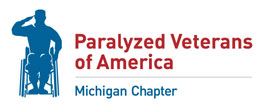 The following No-Fault Status Report written by MBIPC President Tom Judd provides an accurate and comprehensive description of exactly where things stand as we close out 2021 and prepare for continued advocacy in 2022. While written primarily from a provider perspective, make no mistake – every proposed change has a direct impact on access to continuing care for catastrophically injured auto crash survivors.
The following No-Fault Status Report written by MBIPC President Tom Judd provides an accurate and comprehensive description of exactly where things stand as we close out 2021 and prepare for continued advocacy in 2022. While written primarily from a provider perspective, make no mistake – every proposed change has a direct impact on access to continuing care for catastrophically injured auto crash survivors.
We encourage you to read this well-written report from Tom, and take heart in the fact that we have a growing number of allies in the legislature as well as the greater disability community who are on our side and calling for change.
Legislative Update: The legislature concluded their session before the holiday break without the introduction of new proposed legislation regarding auto no-fault. To this point, MBIPC has not shared the drafts of the bill beyond review by the Board of Directors out of caution with regards to the process of the bill development and internal discussions occurring with the bill sponsor. As stated in the last update, from an MBIPC perspective, a call to action will not come out until the bill is introduced and/or made public so that there can be context for our recommendations on action steps. MBIPC has been represented (among many other interests and stakeholders) during the draft process of this narrowly focused bill; however, questions remain about the final version, timing of introduction, and pathway for moving the bill forward. We will certainly quickly respond to our membership if/when the bill is introduced.
Given that the bill was not introduced before the holiday break, and the sponsor of the bill, Representative Phil Green, has shared the bill widely with various stakeholders, we feel comfortable sharing the following information from the bill drafts, without concern of any impact on the legislative process. The bill has the following objectives:
- Eliminate the fee cap system currently in place for the Medicare reimbursement. This rather simple fix adjusts the language of the law from providers being eligible for reimbursement at “no more than” than the Medicare multiplier to “at the” Medicare multiplier. The objective would be to address the low-ball reimbursement tactics providers have encountered since July 1, setting a consistent and predictable reimbursement level. Under this amendment, providers that were charging less than the Medicare multiplier in 2019 would continue to be subject to their 2019 rate plus annual CPI adjustment.
- Establish reimbursement rates for residential programs at a multiplier (currently 200%) of the state brain injury Medicaid program as of January 2019.
- Establish reimbursement rates for home health care services at a multiplier (currently 150%) of the applicable Veterans Affairs fee schedule.
- Double the hourly reimbursement limit for “family provided” home care from 56 hours to 112 hours per week.
At this point in the process, there remains room for further discussion, dialogue and negotiation on these provisions. Representative Green is doing his due diligence with stakeholders, both republican and democratic colleagues, and his leadership. MBIPC recognizes that this bill does not solve the fee cap problem for all essential providers, nor does it address the myriad of problems in PA 21. With the opportunities we have had, we have advocated for those services that would continue to have the 55% reimbursement cap applied to them. We have called for a complete elimination of the 55% fee cap system for those not specified in this bill. We recognize that there is the DIFS bulletin that addresses many of these products, services, and accommodations by excluding them from the fee cap system entirely; but, we need that protection codified into law. We will need to continue our advocacy for legislation that can compliment Representative Green’s bill, such as HB 5500 or other future opportunities to fully protect all of our MBIPC members.
As the legislature comes back in January, we will be ready to continue to show full support for legislation that seeks to help our providers meet their missions by providing quality expert service and care. We truly appreciate everyone that has made the extra effort to continue their persistence in the face of continued barriers, challenges, and frustrations. It is your work – your advocacy and relationship development that has kept this issue alive and relevant with our policy makers.
Make no mistake – Representative Green’s bill is facing the same opposition from the same people that every attempt at reasonable solutions have faced over the past 2+ years. The Insurance Alliance of Michigan is pushing hard against this effort – using the MCCA refund and manipulated rate reduction data to challenge legislators who dare put people over big insurance profits. They are using tactics to slander and misrepresent providers. And make no mistake, there remains legislators that are using their power and influence to shut down any viable option from having a fair opportunity.
With that said, we have people fighting for us and the people we serve in the legislature. We must remain persistent and unified in our fight. We CAN overcome those who wish to dismantle the continuum of care in Michigan that has promised and delivered exceptional quality and ethical care for over four decades. Especially during this holiday season, keep your faith, hope, and resilience – we can effectuate the change we need and bring peace and comfort to those in need; but it will take our collective will and persistence.
Unless noted, this company or website has not been verified by, is not affiliated with, and is not endorsed by the Michigan Interfaith Coalition. This resource is provided for informational purposes only.




